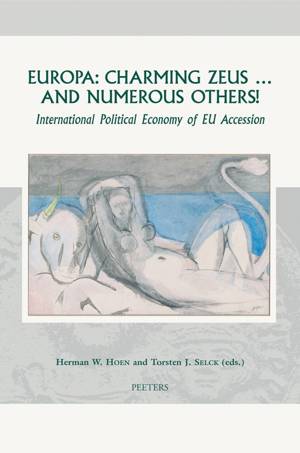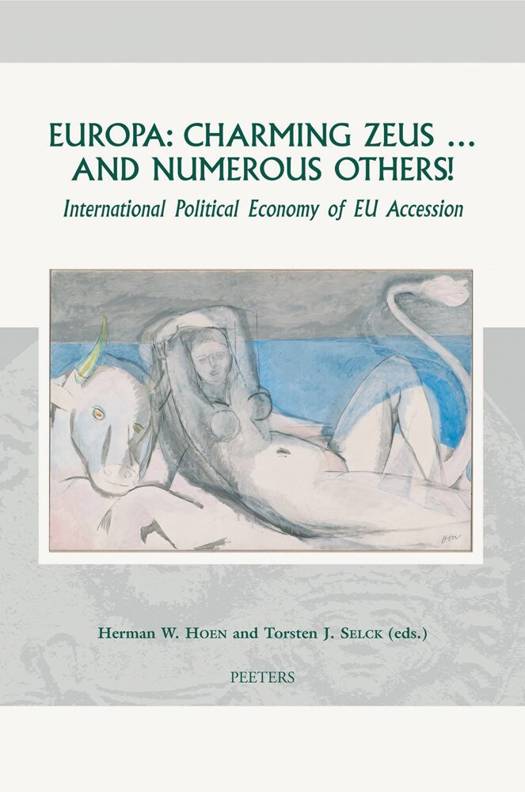
- Afhalen na 1 uur in een winkel met voorraad
- Gratis thuislevering in België vanaf € 30
- Ruim aanbod met 7 miljoen producten
- Afhalen na 1 uur in een winkel met voorraad
- Gratis thuislevering in België vanaf € 30
- Ruim aanbod met 7 miljoen producten
Zoeken
Europa: Charming Zeus ... and Numerous Others!
International Political Economy of EU Accession
Hoen H W Selck T J
€ 45,00
+ 90 punten
Omschrijving
The central topic in this volume is enlargement-induced institutional change of the European Union (EU). Ever since its embryonic stages, the EU has been a highly attractive organisation to join. The EU consists of 27 member states (2007) and after several rounds of accession it looks as if enlargement is in the Union's genes. Moreover, the EU has far-reaching supranational competences which are widely varying in an increasing number of areas. These reveal the coincidence of widening and deepening as the distinctive feature of European integration. The purpose of this volume - Europa: Charming Zeus ... and Numerous Others: International Political Economy of EU Accession - is to provide the reader with a rationale which explains rather than describes integration processes. The volume offers both a new theoretical framework for the study of enlargement-induced institutional change and a wide range of empirical studies which are original in topic and approach. Contributions range from historical overviews of the processes of enlargement, to analyses of specific policy fields and the modelling of decision-making in the EU. What the contributions have in common is that they focus on the dynamics of integration and follow the leading question of international political economy as put forward by Susan Strange: Cui bono?
Specificaties
Betrokkenen
- Auteur(s):
- Uitgeverij:
Inhoud
- Aantal bladzijden:
- 203
- Taal:
- Engels
- Reeks:
- Reeksnummer:
- nr. 29
Eigenschappen
- Productcode (EAN):
- 9789042919426
- Verschijningsdatum:
- 31/12/2007
- Uitvoering:
- Hardcover
- Formaat:
- Genaaid
- Afmetingen:
- 168 mm x 244 mm
- Gewicht:
- 616 g

Alleen bij Standaard Boekhandel
+ 90 punten op je klantenkaart van Standaard Boekhandel
Beoordelingen
We publiceren alleen reviews die voldoen aan de voorwaarden voor reviews. Bekijk onze voorwaarden voor reviews.







